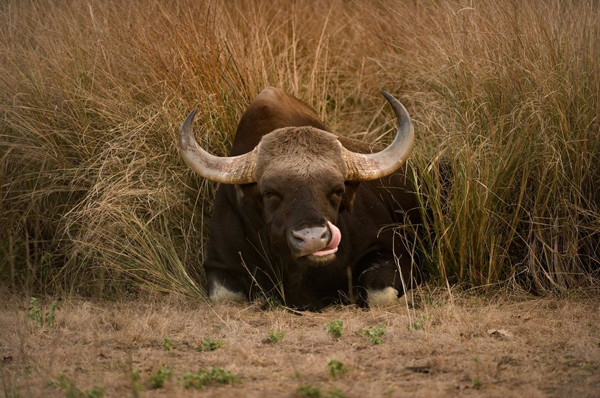The Habitats Trust and the Nature Conservation Foundation join NCBS to support and partner in the MSc Program in Wildlife Biology and Conservation. The unique program is a partnership between academic institutions and conservation NGOs. With a mission to build capacity for the conservation of India’s wildlife and natural ecosystems through high-quality training, the program is now working towards a consortium of partners to deliver and widen its mandate. A one-of-a-kind program in India, it is aimed at producing well-trained wildlife biologists and conservation practitioners who will retain their passion for wild places and a sense of purpose to try and conserve them. Subject experts provide students with a strong foundation in science that will help them design, implement, and monitor a range of ecological studies and conservation projects.
“A diversity of partners will bring a diversity of expertise and conservation viewpoints to bear on the program and enable a wider range of engagements in conservation research and capacity building,” says Dr. Jayashree Ratnam, Director of the program.
To develop the necessary capabilities for excellent work, students learn about wildlife science and conservation through a multi-disciplinary syllabus. They are trained in fundamental ecology, project design skills, and the technical tools required to carry out scientific studies. As future conservationists, they are also exposed to the historical, social, and legal contexts that underlie the conservation process. In addition, they also learn effective communication skills using a variety of media, while independent research work in remote field sites develops problem-solving skills, all key to dealing with real life conservation issues. These skills have certainly come into practice with the latest batch of students (2018-2020), who have been conducting the last leg of their fieldwork and thesis-writing in the midst of the pandemic.
The Habitats Trust (THT) works to secure natural habitats and indigenous species, with a mission to create and conserve sustainable ecosystems through strategic partnerships and collaborations with stakeholders at every level. THT envisions that natural habitats will be secured for future generations, and all species will share our planet in fairness and harmony. To support this mission, THT aims to invest in the enrichment of future conservation practitioners and researchers, and will provide complete funding support for up to three students, the ‘THT Fellows’ in the program. “Reliable data, science, and real world experience form the backbone of any successful conservation intervention. NCBS’s MSc Wildlife program equips the conservationists of tomorrow with the knowledge and skills they require to build holistic programs to conserve our threatened flora and fauna,” says Trisha Ghose, Project Director, THT.
The Nature Conservation Foundation aims to contribute to the knowledge and conservation of India’s unique wildlife heritage with innovative research and imaginative solutions. With more than two decades of work in a range of wildlife habitats—from coral reefs and tropical rainforests to the high mountains of the Himalayas, NCF joins NCBS as a partner in the program, bringing funding and its experienced conservation practitioners to engage in training and capacity building through the program. "At NCF, we strongly believe that the future of nature in India depends on the next generation of thoughtful and skilled young people who make conservation research and action their life's purpose. Faculty at NCF have been deeply involved in the MSc Program since its inception and we are delighted to now take the next step in joining the partnership of organisations shaping and running the course,” says Dr. TR Shankar Raman, Executive Director, NCF.
Prof. Satyajit Mayor, Centre Director, NCBS, emphasizes the continuing importance of the program, "It is becoming abundantly clear, as brought home by the recent pandemic, that ecological and human well-being are deeply connected. Like never before, challenges that we encounter in the face of climate change and ongoing losses of biodiversity and ecosystem function will require the best training and keenest minds to meet them. NCBS remains deeply committed to contributing to such capacity building. We welcome the engagements of NCF and THT in our program, and look forward to continuing and expanding our efforts in this area."
Image credit: Kalyan Varma










0 Comments